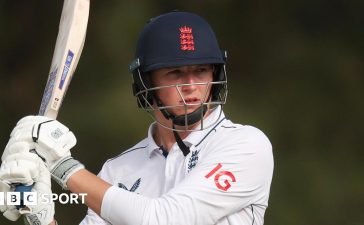Stay informed with free updates
Simply sign up to the UK inflation myFT Digest — delivered directly to your inbox.
UK inflation unexpectedly slowed to 2.5 per cent in December, easing pressure on chancellor Rachel Reeves and clearing the path for the Bank of England to press ahead with cutting interest rates next month.
Consumer price inflation was below November’s 2.6 per cent reading, pulled lower by restaurant and hotel prices. Analysts had expected inflation to hold steady last month.
Wednesday’s data will provide some relief for Reeves, who is contending with higher borrowing costs fuelled by fears the UK economy could be entering a period of stagflation, in which sluggish growth is accompanied by persistent price pressures.
But economists still expect inflation to reaccelerate in the months ahead, particularly given that December’s drop was driven by volatile factors such as lower airfares.
“There is still work to be done to help families across the country with the cost of living,” Reeves said on Wednesday, as she insisted she would “fight every day” to deliver growth and improve living standards.
The recent increase in UK government borrowing costs, which last week hit a 16-year high, has threatened to blow a hole in the chancellor’s promise to balance day-to-day spending with tax receipts by 2029.
But Wednesday’s inflation data sparked a rally in UK gilts, pushing the 10-year yield down 0.09 percentage points in morning trading to 4.8 per cent and putting the bonds on track for their best day since October.
The pound strengthened following the release to trade flat on the day at $1.222.
Zara Nokes, an analyst at JPMorgan Asset Management, said: “After a difficult start to the year, this morning’s inflation print will provide some relief to chancellor Reeves.”
She added that a stronger inflation figure could have been “a catalyst for further volatility in the gilt market”.
The report, from the Office for National Statistics, comes as the BoE’s Monetary Policy Committee prepares to hold its first meeting of 2025 next month.
Following the data release, traders were pricing in a more than 80 per cent chance of a quarter-point cut in February, compared with about 60 per cent beforehand, according to levels implied by swaps markets.
Rob Wood, UK economist at Pantheon Macroeconomics, said the below-consensus inflation figure gave the BoE a “window of opportunity to cut rates in February”.
However, he described the figure as a “temporary reprieve”, adding that the steep drop in airfares was likely to reverse in January.

Wednesday’s data showed that services inflation, which is closely watched by the BoE as a gauge of underlying price pressures, slowed sharply to 4.4 per cent from 5 per cent previously.
It was also below the 4.9 per cent reading expected by economists.
About half of the drop in services inflation was driven by airfares, according to Ruth Gregory of Capital Economics. Airfares growth was the third-weakest for a December on record.
The ONS said this was partly the result of the data including return flights on Christmas Eve and New Year’s Eve.
Core inflation, which excludes food and energy, dropped to 3.2 per cent from 3.5 per cent.
The figures come as Reeves is under increasing pressure over the impact of decisions she made in October’s Budget, including increasing employer national insurance contributions.
On Tuesday, the chancellor shrugged off calls for her resignation, after her Conservative counterpart, Mel Stride, accused her of being part of a “Shakespearean tragedy” amid the turmoil in bond markets.
Stride welcomed the inflation figure on Wednesday but warned there were “still challenges ahead”, with the employer national insurance rise “yet to bite” and likely to lead to higher prices.
Liberal Democrat Treasury spokesperson Daisy Cooper said the unexpected fall in inflation offered “a glimmer of hope, but the reality is the UK economy remains stuck in the mud”.
Growth was “nowhere to be found”, she added, after the government’s “damaging” increase to employer national insurance.
Treasury chief secretary Darren Jones argued on Wednesday that the pressure on Reeves over tumult in the markets was “unfair”, telling LBC that many issues were down to “global movements in international markets” and noting that other countries were facing similar challenges.









